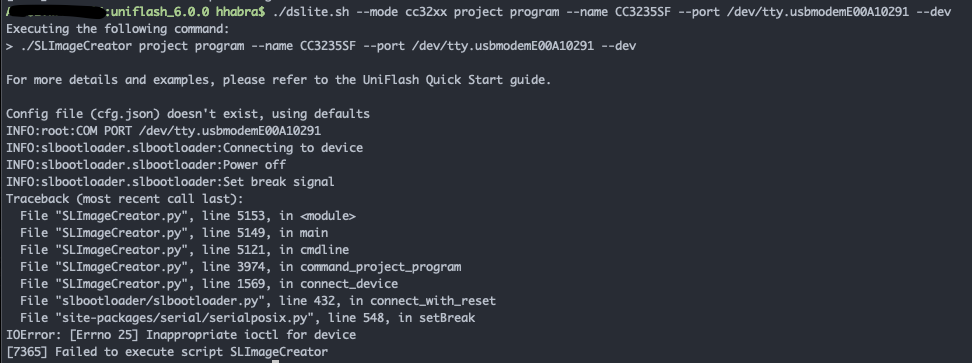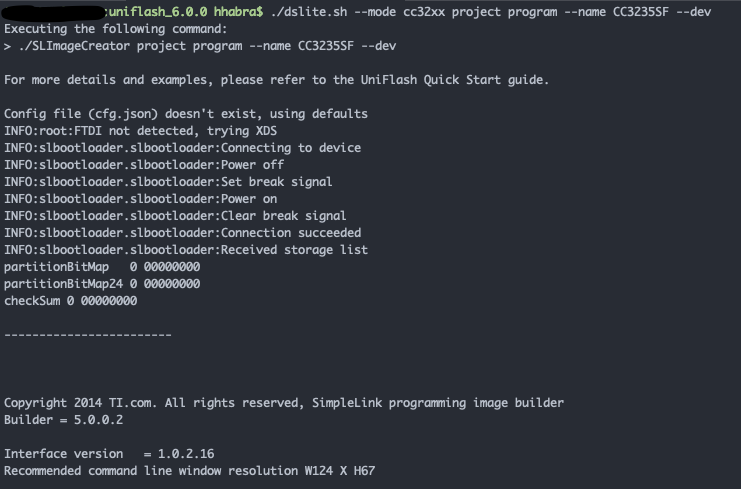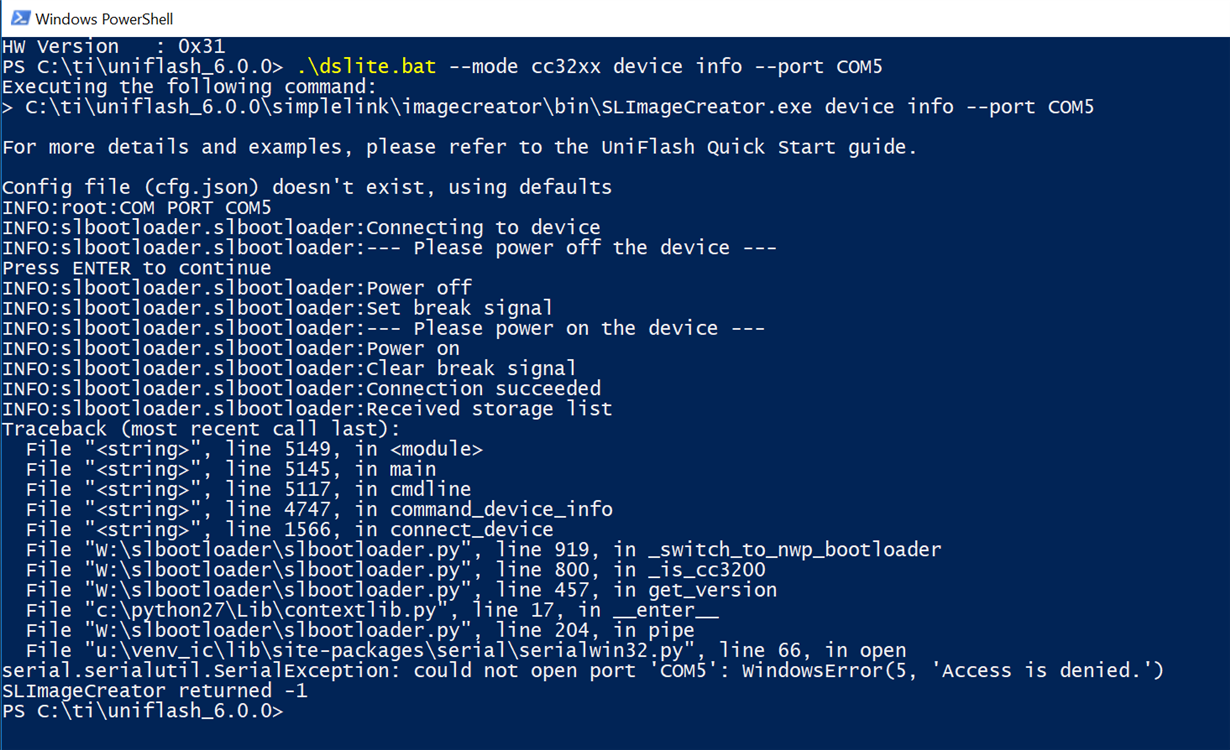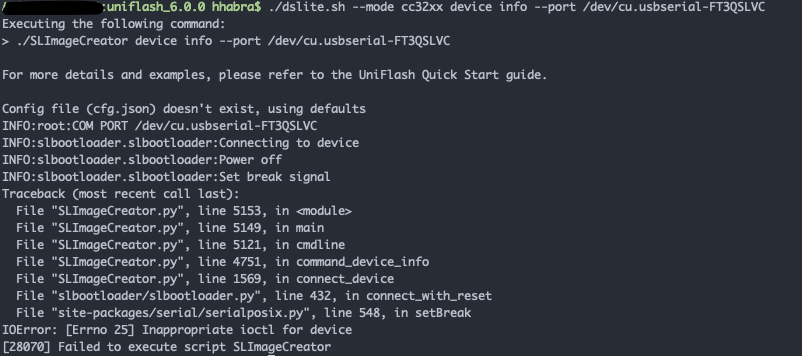Other Parts Discussed in Thread: CC3235SF
Hey
I am trying to flash the CC3235SF launchpad via the UART interface. For this I use the following Uniflash CLI command:
./dslite.sh --mode cc32xx project program --name CC3235SF --port /dev/tty.usbmodemE00A10291 --dev
When executed, the command returns 'Inappropriate ioctl for device' error:
If I omit the --port option, I am able to flash the chip. But now the flashing is done via the xds110 debug probe and that is something what I don't want.
Does somebody know what this error means and how I can fix it? I have already tried several versions of Uniflash, but I keep getting the same error.
Thanks in advance!
Hans








